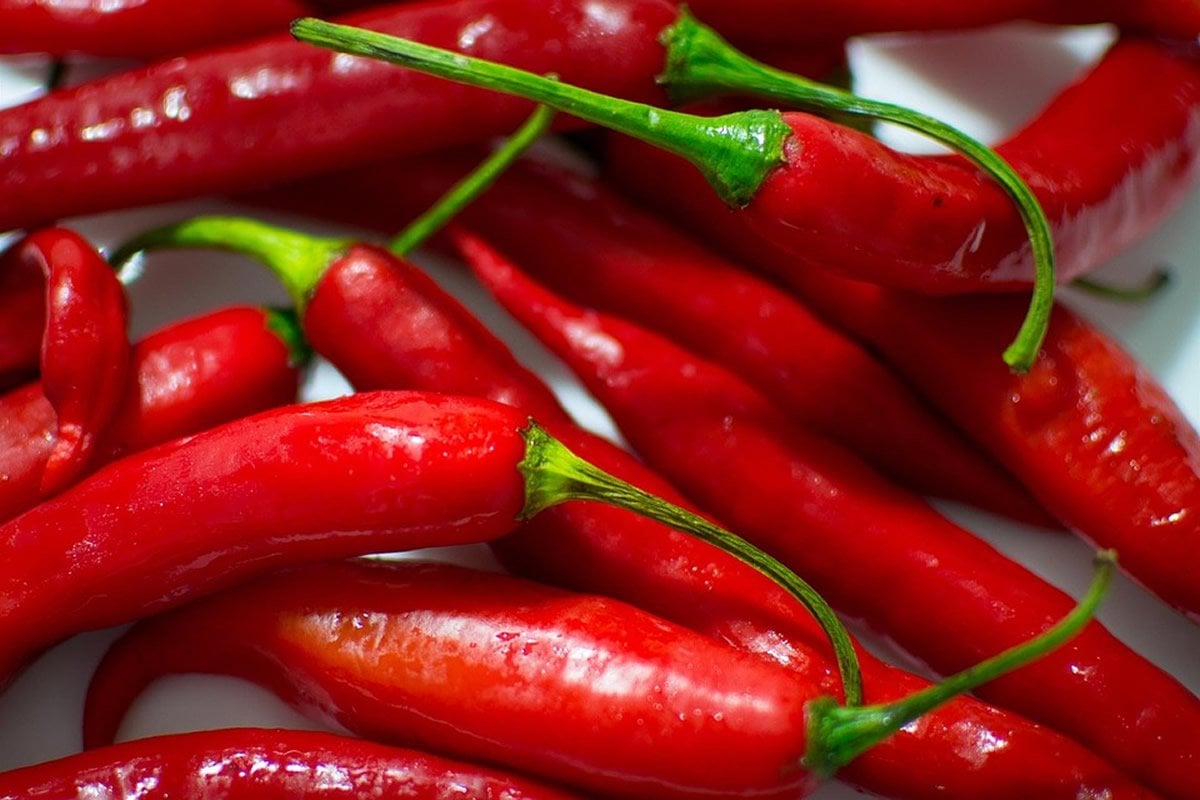Summary: Spicy food lovers may be at greater risk of dementia than those who prefer more bland foods. A 15-year study reveals those who ate more than 50 grams of chili a day had an increased risk of cognitive decline as they aged. The memory decline was more significant in those with a lower BMI.
Source: University of South Australia
Think twice before adding that extra kick of chili sauce or chopped jalapeno to your meal. New research involving the University of South Australia shows a spicy diet could be linked to dementia.
A 15-year study of 4582 Chinese adults aged over 55 found evidence of faster cognitive decline in those who consistently ate more than 50 grams of chili a day. Memory decline was even more significant if the chili lovers were slim.
The study, led by Dr. Zumin Shi from Qatar University, showed that those who consumed in excess of 50 grams of chili a day had almost double the risk of memory decline and poor cognition.
“Chili consumption was found to be beneficial for body weight and blood pressure in our previous studies. However, in this study, we found adverse effects on cognition among older adults,” Dr. Zumin says.
UniSA epidemiologist Dr. Ming Li, one of five researchers involved in the study, says chili intake included both fresh and dried chili peppers but not sweet capsicum or black pepper.
“Chili is one of the most commonly used spices in the world and particularly popular in Asia compared to European countries,” Dr. Li says.
“In certain regions of China, such as Sichuan and Hunan, almost one in three adults consume spicy food every day.”
Capsaicin is the active component in chili which reportedly speeds up metabolism, fat loss and inhibits vascular disorders but this is the first longitudinal study to investigate the association between chili intake and cognitive function.

Those who ate a lot of chili had a lower income and body mass index (BMI) and were more physically active compared to non-consumers. Researchers say people of normal body weight may be more sensitive to chili intake than overweight people, hence the impact on memory and weight. Education levels may also play a role in cognitive decline and this link requires further research.
Additional information
The China Health and Nutrition Survey (CHNS) is an ongoing household-based cohort study conducted in nine provinces in China between 1989 and 2011. Cognitive screen tests were conducted among those aged 55 and above in regular intervals between 1991 to 2006. The participants were asked to recall a 10-word list, counting backwards from 20 and doing some basic subtractions.
It is estimated that dementia affects about 50 million people globally. In 2017, approximately 9.5 million Chinese adults aged 60 years and above had dementia.
Source:
University of South Australia
Media Contacts:
Candy Gibson – University of South Australia
Image Source:
The image is in the public domain.
Original Research: Open access
“High Chili Intake and Cognitive Function among 4582 Adults: An Open Cohort Study over 15 Years”. Zumin Shi, Tahra El-Obeid, Malcolm Riley, Ming Li, Amanda Page and Jianghong Liu.
Nutrients. doi:10.3390/nu11051183
Abstract
High Chili Intake and Cognitive Function among 4582 Adults: An Open Cohort Study over 15 Years
We aimed to examine the association between chili intake and cognitive function in Chinese adults. This is a longitudinal study of 4852 adults (age 63.4 ± 7.7) attending the China Health and Nutrition Survey during 1991 and 2006. Cognitive function was assessed in 1997, 2000, 2004 and 2006. In total, 3302 completed cognitive screening tests in at least two surveys. Chili intake was assessed by a 3-day food record during home visits in each survey between 1991 and 2006. Multivariable mixed linear regression and logistic regression were used. Chili intake was inversely related to cognitive function. In fully adjusted models, including sociodemographic and lifestyle factors, compared with non-consumers, those whose cumulative average chili intake above 50 g/day had the regression coefficients (and 95% CI) for global cognitive function of −1.13 (−1.71–0.54). Compared with non-consumers, those with chili consumption above 50 g/day had the odds ratio (and 95% CI) of 2.12(1.63–2.77), 1.56(1.23–1.97) for self-reported poor memory and self-reported memory decline, respectively. The positive association between chili intake and cognitive decline was stronger among those with low BMI than those with high BMI. The longitudinal data indicate that higher chili intake is positively associated with cognitive decline in Chinese adults in both genders






